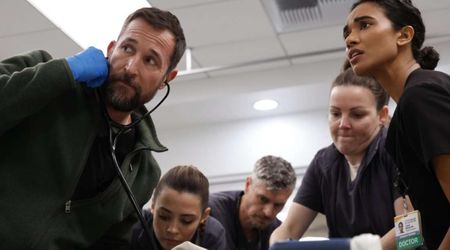The life and 'death' of crypto king Gerry Cotten: Mystery of cold wallets and missing millions

Gerald Cotten was just 15 when he first began his lucrative scheme in an online forum called TalkGold, convincing his investors they would enjoy returns of up to 150 percent in two days. The computer enthusiast from Belleville, Ontario, ran the venture, called S&S Investments, for three months before it folded and all the investments vanished.
Cotten, popularly known as Gerry, was accused of swindling people at a much bigger scale fifteen years later. He grew up to be a cryptocurrency entrepreneur and led Canada's largest crypto exchange -- QuadrigaCX -- before he died under mysterious circumstances in 2018, with investors left looking for a total of $180 million Canadian dollars that went missing simultaneously. QuadrigaCX excelled amid the sensational rise in the price of cryptocurrencies like Bitcoin and was reportedly handling $1 billion in trades by 2017. Cotten's story is being explored in the Netflix documentary 'Trust No One: The Hunt for the Crypto King', which is slated to release on March 30, 2022.
RELATED ARTICLES
Who is Heather Morgan? 'Crocodile of Wall Street' arrested for laundering $4.5B in crypto
Who created Safemoon? #SafemoonSqueeze trends as scramble for new crypto begins
Cotten, who died at just 30, appeared to be living the life of a financial titan. He and his wife Jennifer Robertson trotted the globe on private jets, visiting posh destinations in Paris, Morocco, and Hawaii. The crypto magnate wasn't shy to splurge on luxury, buying a $600,000 yacht, a high-end Lexus, 17 homes in Canada, and a plane. Cotten billed his enterprise as a lot more than just a financial tool, but one that would spark monumental societal change. “It essentially removes the need for a central authority. Then you get rid of the fees. You get rid of a lot of the regulations,” he said on a podcast in 2014. “It’s pretty much money by people for people.”
In 2018, however, things went awry when the price of Bitcoin suffered a freefall. Investors attempting to pull their money from Quadriga grew frustrated after facing month-long delays. Quadriga, like many crypto exchanges, kept its investors' funds locked in so-called "cold wallets" -- digital storage devices that are safe from hacking as they are not connected to the internet. However, the problem was only Gerry knew the passwords to the company's secret vaults. The situation was worsened after a computer error wiped $14 million of Ethereum off the exchange, and a Canadian bank froze another $21 million of funds.
Cotten and his wife flew to India for their honeymoon in December of 2018, but the crypto entrepreneur died of complications from Crohn's disease 12 days after updating his will. Indian authorities allowed his body to be embalmed and flown back to Canada for a closed-casket funeral. Strangely enough, his death wasn't made public for another 36 days, until January 2019. Quadriga filed for creditor protection that same month, and swarms of enraged investors began asking about their money. The company scrambled as only Cotten knew the passkey to its crypto vaults and hadn't set up a "dead man's trigger" to communicate the credentials in case he was incapacitated.
The intrigue caused some to even question whether Cotten had really passed and demanded his body be exhumed for confirmation. His wife, who confirmed he's dead and that she was at his funeral, clarified in her memoir that she wasn't part of an elaborate plot to fake Cotten's death. She bemoaned that such claims had led to death threats against her from stalkers demanding that she return the missing millions.
Is Gerald Cotten, the CEO of Canada’s largest cryptocurrency exchange, really dead? $215 million is gone and creditors want answers.
— CBC Docs (@cbcdocs) December 28, 2021
Watch 'Deadman’s Switch', coming to CBC and CBC Gem on January 2 at 8 pm, part of @HotDocs on CBC film festival. pic.twitter.com/lNpvy5kfNT
The collapse of Quadriga prompted several civil investigations into how such huge sums of money could simply be vaporized. QCX-INT, an individual who uncovered Cotten’s history of fraudulent behavior, spoke to the CBC on condition of anonymity earlier this year. "At that point, we were desperate to recover funds and we were also convinced that a scam was underway," they said. "It did become an obsession.” QCX-INT was able to trace domain names, links, and trades on the blockchain, unraveling a long record of schemes from Cotten's fledgling days on TalkGold to his association with Michael Patryn, a business partner.
In 2005, Patryn pled guilty to working in an identity fraud ring and conducted business under a company called Midas Gold, which was listed as an intermediary with Liberty Reserve, a Costa Rican digital currency company that was busted as one of the largest money-laundering operations in history. Court records revealed that Cotten's email was listed as Midas Gold's contact. According to Independent, neither Cotten nor Patryn was charged in connection with the Liberty Reserve scam.
It emerged that the pair had launched Quadriga two years after Liberty Reserve was taken down. Patryn, however, left the company in 2016 over a dispute on whether to list the company publicly. He has maintained he had no involvement in the schemes that followed. Quadriga was probed by the Ontario Securities Commission after it imploded in 2019. The investigation found that "what happened at Quadriga was an old-fashioned fraud wrapped in modern technology." The commission revealed that Cotten had created several fake accounts on Quadriga to influence the trades on the platform. At one point, he was reportedly personally involved in a whopping 87 percent of the transactions. The computer whiz went a step further, allegedly mixing his investors' money with his own and funneling the same to maintain his widely documented lavish lifestyle.
Jennifer Robertson met her husband, Bitcoin entrepreneur Gerald Cotten, on Tinder. His company, QuadrigaCX, expanded quickly. Then, Cotten suddenly died. Overnight, their dream life became Robertson’s worst nightmare. Listen and subscribe to the podcast: https://t.co/bBIwwtUFuq pic.twitter.com/CvL9RKaWCY
— The Walrus (@thewalrus) February 23, 2022
Robertson, his wife, said she was "upset and disappointed" after she found out the level of fraud that had taken place at her late husband's firm. In a 2019 statement, she denied being aware or involved in “Gerry’s trading activities, nor his appropriation of customer funds." She added that she had no idea about the "cold wallet" passwords that are holding back customer funds and that Cotten hadn't written the credentials down anywhere. Only about $46 million out of the aforementioned $180 million has been recovered so far.










